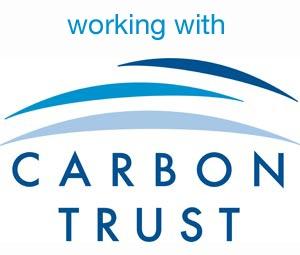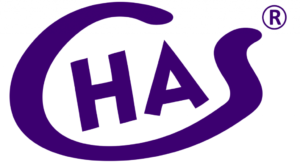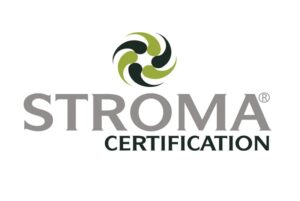As a homeowner in London, water efficiency is a crucial aspect of your property that can significantly impact both your utility bills and your environmental footprint. With the city’s growing population and the increasing strain on natural resources, understanding and implementing water efficiency calculations is more important than ever. This blog will explore the significance of water efficiency calculations, their benefits, and how they can help make your London home more sustainable and cost-effective.
What Is a Water Efficiency Calculation?
A water efficiency calculation is an assessment used to estimate the amount of water a household will consume, typically measured in litres per person per day. This calculation considers the efficiency of all water-using fixtures and appliances within a home, such as taps, showers, toilets, and washing machines. The goal is to evaluate how efficiently a home uses water and identify areas where improvements can be made.
In London, where water conservation is increasingly a priority due to the city’s growing demand and environmental challenges, water efficiency calculations are not just a good practice—they’re often a regulatory requirement for new builds and significant renovations.
Why Are Water Efficiency Calculations Important for London Homes?
1. Compliance with Building Regulations
In the UK, the Building Regulations mandate specific standards for water efficiency in new homes. For properties in London, these regulations often require that water usage is limited to 105 litres per person per day. Meeting this standard is essential for obtaining planning approval for new constructions and major renovations.
Water efficiency calculations are the primary method for demonstrating compliance with these regulations. Without accurate calculations, homeowners and developers could face delays, fines, or even project cancellations.
2. Reducing Water Bills
Water efficiency directly correlates with reduced water consumption, leading to lower water bills. In a city like London, where utility costs are relatively high, every drop saved can contribute to significant financial savings over time. Water efficiency calculations help you identify areas where water use can be reduced, such as by installing low-flow fixtures or optimising your irrigation system.
By implementing the insights gained from a water efficiency calculation, homeowners can make informed decisions that result in long-term cost savings, making it a smart financial investment.
3. Environmental Responsibility
London’s water resources are under increasing pressure due to climate change and a growing population. Reducing water usage through efficiency measures helps conserve these vital resources and reduce the environmental impact of your home. Every litre of water saved also means less energy used for water treatment and heating, which in turn lowers your home’s carbon footprint.
Conducting a water efficiency calculation is a proactive step towards making your home more environmentally friendly, aligning with broader sustainability goals that are increasingly important to many Londoners.
4. Enhancing Property Value
As sustainability becomes a more significant factor in the property market, homes that demonstrate strong water efficiency are likely to be more attractive to potential buyers and renters. In London, where the demand for eco-friendly properties is growing, having a home with verified water efficiency can enhance its market value and appeal.
Buyers are increasingly aware of the long-term cost benefits of water-efficient homes, and a property that meets or exceeds water efficiency standards can stand out in a competitive market.
5. Futureproofing Against Water Scarcity
Water scarcity is a growing concern, especially in urban areas like London. Future regulations may impose even stricter water usage limits as the city adapts to these challenges. By conducting water efficiency calculations and implementing recommended improvements, you can ensure that your home is better prepared for potential future restrictions.
Future-proofing your home in this way not only protects its value but also ensures that it remains compliant with any new regulations, avoiding potential penalties and maintaining its appeal.
6. Supporting London’s Sustainability Goals
London has set ambitious sustainability targets, including significant reductions in water usage across the city. By performing water efficiency calculations and improving your home’s water efficiency, you contribute to these citywide goals. This not only benefits the environment but also supports the community’s efforts to create a more sustainable and resilient city.
Being part of this collective effort can enhance your home’s reputation and provide a sense of pride in contributing to London’s sustainability journey.
How to Conduct a Water Efficiency Calculation for Your London Home
Conducting a water efficiency calculation involves a systematic assessment of your home’s water use. Here’s a step-by-step guide:
- Inventory Water-Using Fixtures and Appliances: List all the water-using fixtures and appliances in your home, including taps, showers, toilets, dishwashers, and washing machines. Note their flow rates and usage patterns.
- Calculate Water Usage: Use the flow rates and estimated daily usage to calculate the total water consumption for each fixture and appliance. This can be done manually or with the help of specialised software designed for water efficiency assessments.
- Compare Against Standards: Compare your total calculated water usage with the standard 105 litres per person per day target for London. Identify areas where your usage exceeds this limit and prioritise those for improvement.
- Implement Water-Saving Measures: Based on your calculations, consider upgrading to water-efficient fixtures, such as low-flow showerheads, dual-flush toilets, and water-saving dishwashers. Additionally, explore options like rainwater harvesting systems or greywater recycling to further reduce mains water usage.
- Monitor and Maintain Efficiency: Once improvements are made, regularly monitor your water usage to ensure that it remains within the desired limits. Check for leaks and consider further upgrades as new water-saving technologies become available.
Additional Tips for Enhancing Water Efficiency
- Install Aerators on Taps: Aerators reduce the flow of water from taps without affecting performance, saving water with every use.
- Use a Water Butt: Collect rainwater for use in your garden, reducing the need for mains water.
- Fix Leaks Promptly: Even a small drip can waste thousands of litres of water over time, so regular maintenance is key.
Conclusion
Water efficiency calculations are an essential tool for London homeowners who want to reduce their water consumption, lower their utility bills, and contribute to environmental sustainability. By understanding your home’s water usage and implementing targeted efficiency measures, you can make your home more resilient, future-proof, and attractive in a competitive property market.
Whether you’re planning a renovation, building a new home, or simply looking to improve your current property, conducting a water efficiency calculation is a crucial step towards a more sustainable and cost-effective home. Don’t wait until regulations tighten or water costs rise—take proactive steps today to ensure that your home is as water-efficient as possible.
If you’re unsure how to get started, consider consulting with a professional who can guide you through the water efficiency calculation process and help you implement the best solutions for your home.












